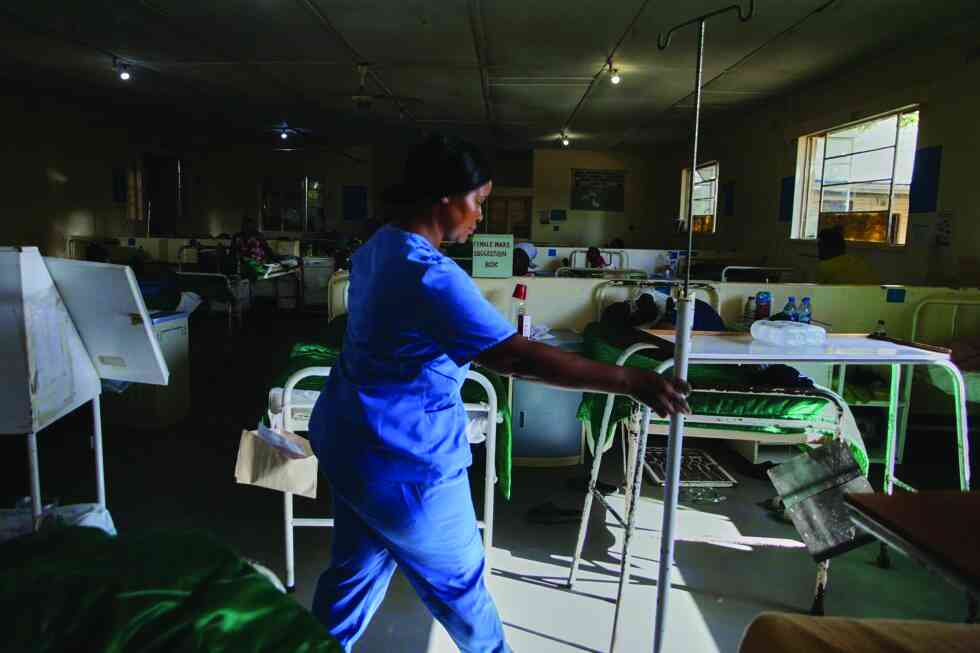
Medical aid and pensions are globally recognised as pillars of employee well-being. They represent an employer’s commitment to long-term health, security, and dignity for their workforce. Yet in Zimbabwe, these once valued benefits have become sources of frustration, mistrust, and in many cases, financial disillusionment. Despite accounting for significant payroll costs, they often fail to deliver meaningful value to the very people they are meant to protect.
Pension crisis: Broken promises
Zimbabwe’s pension landscape tells a painful story. For decades, employees have diligently contributed to pension funds—often under the assumption that these contributions would secure their post retirement life. The reality has been starkly different. Inflation, currency volatility, and poor fund governance have eroded the value of pensions to the point where many retirees are left impoverished.
The Justice Smith Commission of Inquiry into the Conversion of Insurance and Pension Values from Zimbabwe Dollars to United States Dollars exposed gross irregularities in how pension benefits were managed and converted during the country’s economic crises. Many workers lost nearly all their lifetime savings in the hyperinflation years, and those who retired post-dollarisation have not fared any better.
This collapse has bred cynicism. Younger employees often see pension contributions as another tax, not a benefit. Employers, meanwhile, continue to allocate significant resources toward pension contributions, sometimes up to 10% of gross salaries, with little to show for it in terms of employee satisfaction or trust.
Medical aid: Expensive and unclear
Medical aid schemes in Zimbabwe have also lost much of their sheen. The principle of pooling risk to protect employees against high medical costs remains sound. However, implementation is fraught with problems.
The cost of medical aid has ballooned, even in real US dollar terms. Employers now pay hundreds of dollars per employee per month, especially for family cover. Yet when employees need care, they often encounter co-payments, unclear limits, and endless exclusions. Delays in processing claims and pre-authorisation complications further erode confidence in the system.
- Mavhunga puts DeMbare into Chibuku quarterfinals
- Bulls to charge into Zimbabwe gold stocks
- Ndiraya concerned as goals dry up
- Letters: How solar power is transforming African farms
Keep Reading
Worse still, many health providers now prefer cash patients over insured patients due to late or underpayments from medical aid societies. Employees report being asked to top up significant amounts out-of-pocket — even after years of contribution. The end result is that employees and their families feel exposed, confused, and unsupported, even while employers continue to pay increasing premiums.
The disconnect
What we are witnessing in Zimbabwe is a growing disconnect between what employers spend and what employees experience. This is not just a technical or HR issue. It is a strategic question of whether employee benefits are serving their intended purpose: to support, protect, and retain talent.
In markets with similar challenges, employers are beginning to reimagine how these benefits are structured. They are moving away from the traditional, one-size-fits-all approach and embracing models that prioritise value, transparency, and flexibility.
For instance, in some countries some companies have introduced “health wallets” where unused portions of medical aid can roll over or be converted into wellness services. In others, some employers are partnering directly with private clinics and hospitals to negotiate fixed-fee packages with guaranteed service quality and availability— cutting out intermediaries where necessary.
What can Zim employers do?
Rather than continuing to pour money into underperforming schemes, employers must rethink benefit design from the ground up. This does not mean abandoning pensions or medical aid — but rather ensuring they deliver real, usable value.
Involve employees in evaluating and redesigning medical aid and pension offerings. Use surveys, focus groups, and HR analytics to understand pain points and preferences. For instance, younger employees may prefer a hybrid retirement plan that includes voluntary savings, while older staff may prioritise secure annuities.
Whether it is a pension fund or a medical aid society, service providers must be held to account.
Employers should insist on transparent reporting, clear service level agreements, and regular performance reviews. In cases of poor service delivery, switching providers — or pooling resources with other employers to negotiate better terms — should be put on the table.
Financial literacy
Part of the problem is that employees often do not understand their benefits. Employers should invest in workshops, communication campaigns, and digital tools to demystify medical and pension schemes. A well-informed employee makes better decisions and values the benefit more.
A matter of trust, care
Ultimately, the conversation about benefits is one about trust. In a country where public institutions have struggled to uphold commitments, employers have a chance to lead by example. Benefits that work — really work — are a powerful signal to employees: “We care about your future, and we back that care with substance.”
If employers in Zimbabwe are serious about supporting their people, they must go beyond paying premiums and start demanding value. This means partnering with innovative providers, redesigning outdated schemes, and treating benefits as part of the broader employer value proposition.
It is time for bold thinking. The current system is broken — but that does not mean the idea of pensions and medical aid is broken. It simply means we need to rebuild these benefits around the principles of sustainability, value, and shared responsibility.
Only then can we restore their true purpose: to protect, support, and dignify the lives of employees.
- Nguwi is an occupational psychologist, data scientist, speaker and managing consultant at Industrial Psychology Consultants (Pvt) Ltd, a management and HR consulting firm. https://www.linkedin.com/in/memorynguwi/ Phone +263 24 248 1 946-48/ 2290 0276, cell number +263 772 356 361 or e-mail: mnguwi@ipcconsultants.com or visit ipcconsultants.com.







